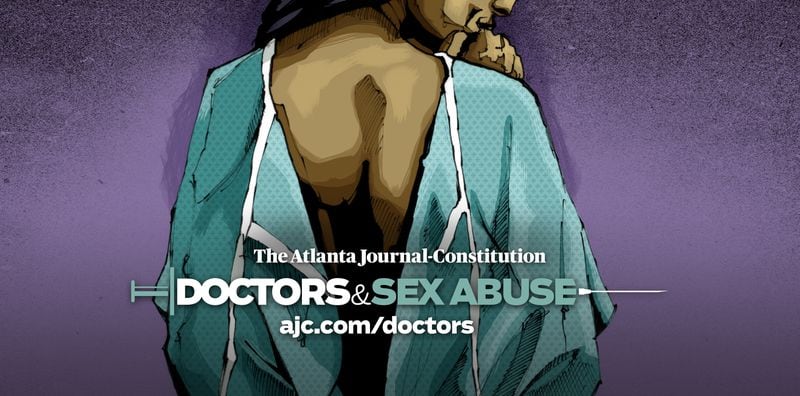Sexual abuse scandals at American institutions like the Boy Scouts and the military have made headlines, and forced reforms. Now, with the publication of a year-long investigation by reporters at The Atlanta Journal-Constitution, the medical community is facing similar scrutiny.
But perhaps no such scandal has drawn as much attention as the one that rocked the Catholic Church, after the Boston Globe uncovered the true extent of the Church leadership's long cover-up of its problem. That tale hit pop culture with this year's Best Picture-winning film, "Spotlight."
As AJC reporters looked into sexual abuse within the medical community, they saw parallels with the church scandal. At least one Boston newspaper thinks so as well.
Credit: Lois Norder
Credit: Lois Norder
No one knows for sure how many doctors molest their patients. Studies by the John Jay College of Criminal Justice in New York and the U.S. Conference of Catholic Bishops have found between 4 percent and 6 percent of all priests committed an act of sexual abuse. Surveys of physicians asking for voluntary responses have found similar percentages among doctors, or slightly higher.
More significantly, the two cultures have one chief issue in common: secrecy. As it did within the church, secrecy underlies almost all of the proceedings surrounding complaints of sexual misconduct by physicians.
That's a big difference from what happens when someone walks into a police station and files a report of sexual assault. The justice system is geared to let the public know when a potentially dangerous problem arises in their community. If the accused is later cleared, then that gets reported, too.
In contrast, the medical disciplinary system, like church procedure before it, is usually geared to protecting the identities of everyone concerned.
In Colorado, for example, even a patient may not come back to the medical board after filing a complaint and request information about his or her own complaint. The board won't even confirm it had contact with the patient. According to medical board officials there, by law a patient's confidentiality in the matter belongs not to her, but to her doctor.
(The vast majority of patients who suffer sexual abuse from doctors are women.)
In an age of doctor shortages and priest shortages, especially in rural areas or among marginalized populations, the secrecy is geared to make it easier to rehabilitate a physician and send them back into service. Board officials also stress that without secrecy, far fewer people would ever complain, and more abuse would continue unchecked.
But secrecy is also the engine that drives recidivism. It's a lot harder to re-offend if patients are prepared for the possibility.
One reason the AJC undertook this project was to let all patients know that there are things they can do to protect themselves. The first is to know how an intimate medical exam is supposed to proceed: read about it here.







